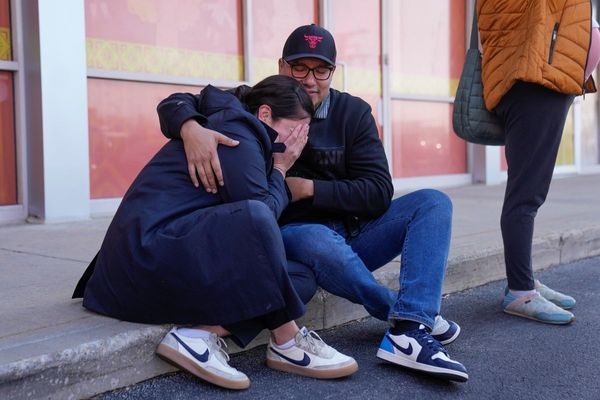
Adolescent boys who cling to stereotypically masculine traits are far more likely to hurt others, and be hurt themselves, a major study has found, but it also found that overall those boys were in the minority.
Through The Men’s Project, 1,401 male, female and non-binary adolescents aged 14 to 18 were surveyed about masculinity by Jesuit Social Services (JSS).
It found that those boys who most strongly endorsed ideas about the need to be what they understand as “manly” – to be stoic, to avoid seeming gay or feminine – were more likely to have bullied or violently or sexually assaulted someone; to watch violent and non-consensual pornography; and to retaliate when rejected.
But the study, Adolescent Man Box (Ambox), found that most did not overwhelmingly endorse those strict ideas of manliness and that they look to real-life role models more than to those online.
Sign up: AU Breaking News email
“There are a lot of reasons for hope,” Matt Tyler, the executive director of The Men’s Project, said.
“I’ll start with girls. Girls reject these ideas. If you’re a heterosexual adolescent boy, that’s a pretty compelling pitch.
“Girls are telling you they don’t want the alpha male … they want you to rock up as your authentic self and connect at a deeper level. Girls don’t want boys subscribing to these restrictive ideas.
“The second reason for hope is there’s a large number of boys, girls, non-binary adolescents under pressure to adhere to these ideas but a much smaller number that endorse them.
“And parents really matter. There’s a lot out there about the manosphere and online influencers, but adolescents are telling us their parents and their friends matter a great deal more – that’s both mums and dads.”
The Ambox model is made of four pillars of belief about what it is to be “manly”: to be constantly tough; emotionally stoic; that one must be able to both taunt and be taunted; and “heterosexism” – that masculinity is in opposition to homosexuality and femininity and anything “girly” or “gay”.
The study found those who hold stereotypical beliefs are more likely to get their ideas about masculinity online, and more than half said pornography has a big influence on “their ideas about how to be a boy in the world”. They were more likely to have seen sexually explicit deepfakes and to have watched porn with concerning and coercive content.
“The pornography they’re watching is more likely to be violent and non-consensual: over 80% are watching pornography where girls or women are choked, kicked, punched, shoved, slapped, gagged, choked, or experiencing something that is non-consensual,” the study found.
“The more strongly adolescent boys hold rigid views about masculinity, the more likely they are to cause harm to others.”
But they are also the ones hurt by these factors. They are more likely to feel misunderstood, to feel lonely, to have poor mental health, and to feel that life is against them.
And on the other end of the spectrum, those who least strongly endorse the “rules” are much more likely to have healthy attitudes to gender equality and to reject violence against women.
The vast majority of boys – 96% – thought girls should be treated as equals, even if their specific beliefs did not reflect that.
And, despite fears about the influence of social media, boys rated their family members as having the biggest impact on their ideas of masculinity at 68%.
Friends, peers and partners came in at 56%; institutions including religion and sporting clubs at 48%; and media at 39%, including 22% for social media and online influencers and 14% for pornography.
There was a striking difference between the proportion of boys endorsing the “rules” and girls.
Two or three times as many boys as girls agreed with statements about the importance of being manly, of not talking about feelings, of not having a lot of gay friends, of suffering teasing even if it’s mean or degrading.
Most girls recognised the pressure on boys to “act manly” but did not necessarily think they should. For example, 62% of girls acknowledged there was an expectation for boys to be manly but only between 8% and 15% agreed with the stereotypical “rules” of manliness, compared with 25% to 44% of boys.
Overall, the report said, everyone has a role to play in challenging the “rules”. “It should not fall solely on boys to challenge these expectations,” it found, and recommended stronger prevention measures, early intervention for at-risk boys, more support for parents and carers to discuss sensitive topics with boys, and that the digital environment should be made safer.
“The crux of this at a fundamentally human level is that anyone, but particularly adolescents, long for belonging, for connection and a sense of purpose,” Tyler said.
“When [that sense] comes from these socially constructed ideas related to gender, your life’s probably not going to be that good. They’re tenuous ideas on which to hang your identity.”







